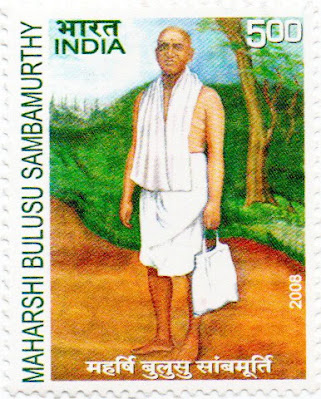A commemorative postage stamp on (04.March.1962) Maharshi Dayanand, was an Indian philosopher, social leader and founder of the Arya Samaj, a reform movement of the Vedic dharma. His magnum opus is the book Satyarth Prakash, which has remained a highly influential text on the philosophy of the Vedas and clarifications of various ideas and duties of human beings. He was the first to give the call for Swaraj as "India for Indians" in 1876, a call later taken up by Lokmanya Tilak. Denouncing the idolatry and ritualistic worship, he worked towards reviving Vedic ideologies. Subsequently, the philosopher and President of India, S. Radhakrishnan, called him one of the "makers of Modern India", as did Sri Aurobindo
















